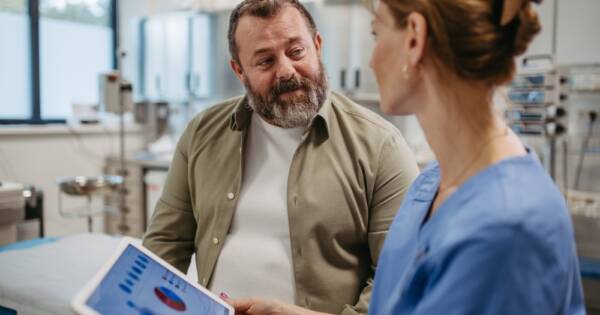Strong bones are vital for balance, mobility, and overall vitality, yet they often don’t get the attention they deserve—until problems arise. Age, lifestyle, and diet can all impact bone density, making prevention a lifelong priority. From nutrient-rich meals to purposeful movement, everyday choices play a powerful role in maintaining skeletal health. Supporting bones through mindful habits not only helps prevent fractures but also contributes to lasting physical resilience and independence.
Essential Nutrients for Bone Health
A well-balanced diet is crucial for maintaining strong and healthy bones. Key nutrients like calcium, vitamin D, and magnesium play a significant role in bone health. Calcium is the foundation of strong bones and is essential for maintaining bone density. Dairy products, leafy greens, and fortified foods are excellent sources of calcium.
Vitamin D is also important as it helps the body absorb calcium. You can get vitamin D from sun exposure, fortified foods, or supplements. Magnesium, found in nuts, seeds, and whole grains, supports bone structure by working with calcium and vitamin D.
Other beneficial nutrients include vitamin K, which helps regulate calcium, and phosphorus, which is necessary for bone mineralization. Incorporating these nutrients into your diet will help build and maintain healthy bones over time, reducing the risk of bone loss and fractures as you age.
Exercises That Strengthen Bones
Exercise is just as important as diet when it comes to bone health. Weight-bearing and resistance exercises are the best types for strengthening bones. Weight-bearing exercises, such as walking, jogging, and dancing, force your body to work against gravity, which helps stimulate bone growth. Resistance training, like lifting weights or using resistance bands, also enhances bone density by putting stress on the bones, encouraging them to become stronger.
Additionally, balance exercises, such as yoga or tai chi, can help prevent falls, reducing the risk of bone fractures. Regular physical activity not only builds strong bones but also improves muscle strength, coordination, and balance, all of which are important for overall skeletal health. Making exercise a part of your daily routine can significantly reduce the risk of osteoporosis and other bone-related issues later in life.
Risks of Neglecting Bone Health
Neglecting your bone health can lead to serious consequences, particularly as you age. Without proper care, bones can weaken, leading to conditions such as osteoporosis, which makes them fragile and more likely to break. Osteoporosis is often called the “silent disease” because it progresses without symptoms until a fracture occurs.
Weak bones increase the likelihood of falls and fractures, which can lead to long recovery times, reduced mobility, and a lower quality of life. Fractures, especially in the hips or spine, can be particularly debilitating, sometimes requiring surgery or causing long-term disability.
Beyond osteoporosis, poor bone health can contribute to chronic pain and joint issues. Therefore, it’s important to maintain a diet rich in bone-supporting nutrients and engage in regular physical activity to protect your bones and prevent future health complications.
Why Healthy Bones Are Important
Healthy bones are the foundation of a strong and active life. They provide the structure and support your body needs to move, protect vital organs, and store essential minerals like calcium and phosphorus.
As we age, maintaining bone health becomes increasingly important to prevent loss of mobility and independence. Strong bones help reduce the risk of fractures, which can be particularly dangerous for older adults, leading to long recovery times and potential complications.
Healthy bones also play a key role in maintaining posture, balance, and overall physical strength, all of which contribute to a better quality of life. By prioritizing bone health through proper nutrition, exercise, and lifestyle choices, you can protect yourself from bone-related issues and stay active and independent as you age.
Take Those First Steps
Maintaining strong and healthy bones is an ongoing process that requires a combination of proper nutrition, regular exercise, and healthy lifestyle choices. By understanding the secrets to stronger bones and implementing these strategies, individuals can significantly improve their bone health and reduce the risk of developing bone-related issues. To further expand their knowledge on this topic, individuals are encouraged to explore credible resources, consult with healthcare professionals, and stay informed about the latest advancements in bone health research.




